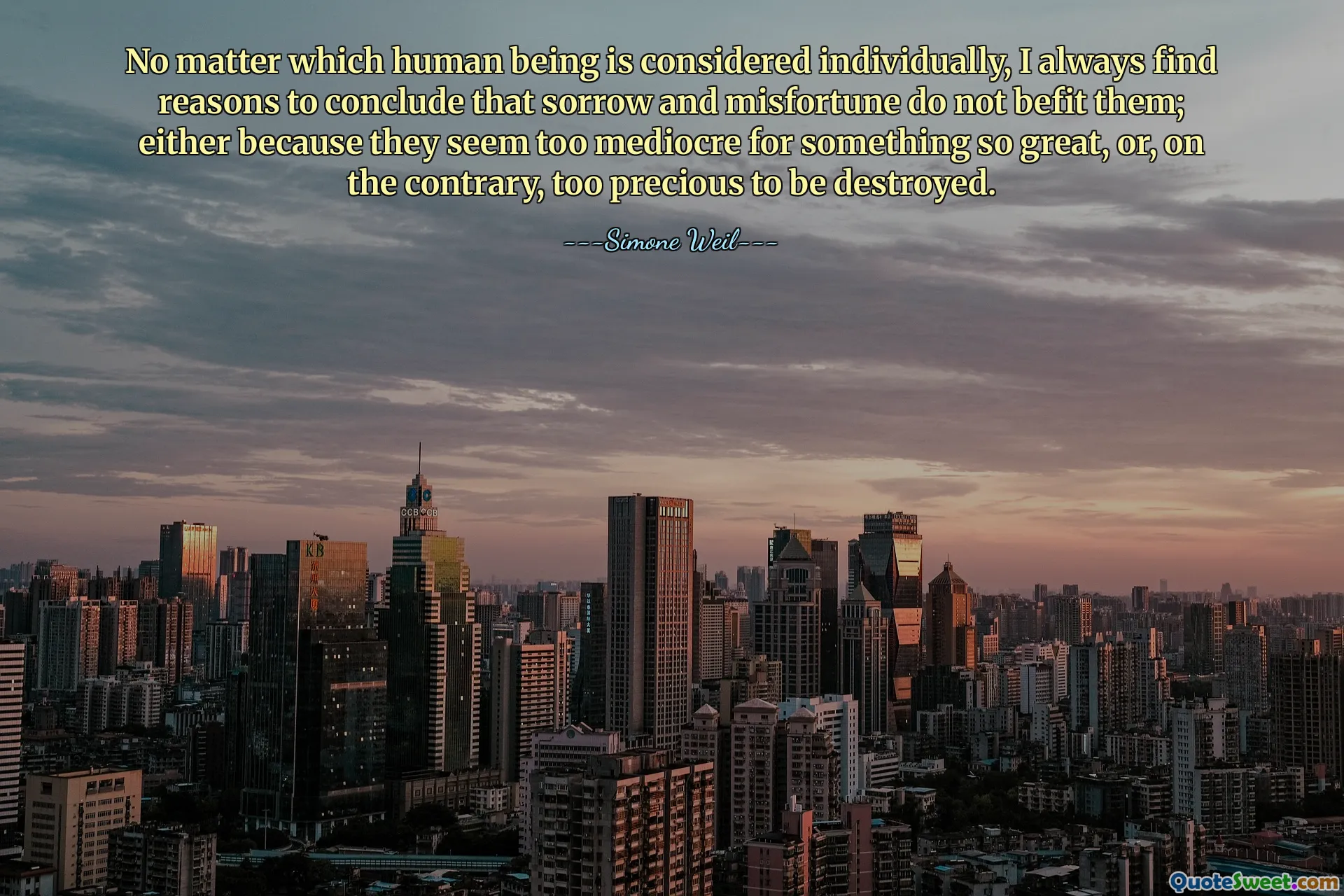
No matter which human being is considered individually, I always find reasons to conclude that sorrow and misfortune do not befit them; either because they seem too mediocre for something so great, or, on the contrary, too precious to be destroyed.
This quote evokes a profound reflection on the dignity and resilience inherent in every human being. It suggests that regardless of a person's outward appearance, accomplishments, or social standing, there exists an intrinsic value that forbids us from viewing them merely as subjects of suffering or misfortune. The idea that some individuals appear 'too mediocre' for greatness hints at the common tendency to dismiss or diminish those who not stand out visibly but who may carry silent strengths or inner virtues. Conversely, considering someone 'too precious' reflects the recognition that certain lives are so valuable, so filled with potential and inherent worth, that their suffering feels incongruous within their existence.
The underlying message can be understood as an affirmation of human dignity—highlighting that affliction or hardship does not define or diminish the individual's essential worth. Instead, it invites us to see beyond surface realities and acknowledge the nuanced, often hidden dignity present within every person. Such a perspective fosters compassion and empathy, pushing us to treat each individual as deserving of respect and kindness, regardless of their circumstances.
This quote also inspires a sense of hope and reminds us of the resilience that lies within the human spirit. It prompts us to consider that perhaps suffering does not necessarily diminish us but can be an integral part of the human experience—one that does not detract from our inherent value. Recognizing this can motivate us to approach others with greater understanding and to see their struggles as a testament to their profound worth. Ultimately, the quote calls for a deeper appreciation of human life—acknowledging both its fragility and its extraordinary dignity.











